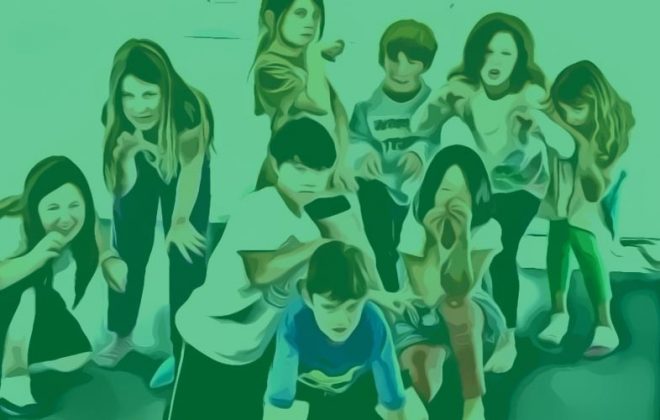
Radical Acceptance: What Makes Improv Therapeutic
In the past decade the field of Improv Therapy has slowly crept its way into psychological scholarship. Frontiers in Psychology and the Journal of Mental Health published articles in 2013 and 2017 respectively outlining the potential therapeutic benefits of comedic improvisation. Around the country professionals ranging from neuropsychologists to therapists to life coaches and wellness experts are incorporating improv techniques into their work. As such improv is currently being used to help individuals suffering from a variety of illnesses including anxiety disorders, autism spectrum disorders and addiction.
Improv Therapy takes the skills that professional improvisers use in performance and applies them to our daily lives to improve our interpersonal effectiveness, empathy, and emotional intelligence. For example, onstage an improviser must always be listening to their scene partner in order to receive and respond to the new information they provide. An improviser who does not listen may as well be performing solo. But is this not true for our own lives? Active listening skills increase our ability to connect with our peers both intellectually and emotionally. Letting another person know they have been heard goes a long way towards establishing meaningful relationships.
In an Improv Therapy class life skills are reinforced through improv games designed to target a specific theme. Many such games focus on the concept of “yes, and,” an oft repeated improv mantra. The idea behind “yes, and” is that in improv, we support each other’s ideas by saying “yes” to whatever suggestion they offer, and then we build upon those ideas with our own suggestions – the “and.” This allows performers to work together to generate wild and entertaining stories. But in improv therapy, “yes, and” reminds us of the importance of supporting others in our everyday lives.
We are all capable of great ideas, and many of us take offense when our ideas are discouraged or dropped in favor of someone else’s. The lesson of “yes, and” is that the best ideas are generated when we welcome outside suggestion and incorporate. This way, everyone involved feels as though their voice is being heard and supported.
Improv games also help patients with acceptance, a skill practiced regularly in Dialectical Behavioral Therapy. All of us have goals both internal and external. We have visions of the lifestyles we would like to lead or the people we would like to be. When confronted with realities that are not compatible with our visions of self, we can feel immense discomfort. Improv Therapy helps patients with accepting situations for what they are and finding positivity within those circumstances, rather than stressing over changing them. Our games focus on accepting all information without judgement. We might go into an exercise with a very funny idea for a joke or a character and find that our partner has offered us an unexpected twist. Improv teaches us that these surprises are not mistakes and should not be judged. Rather, we accept them as “gifts” and continue to improvise.
Improv is also a great tool for practicing mindfulness. The act of keeping one’s thoughts occupied on the present moment is a skill often trained through meditation or yoga, but improv is another effective tool. The very nature of improv forces participants to stay present on the activity, as everything is made up on the spot. One must be focused, aware, and always listening in order to effectively engage with improv.
In an Improv Therapy class life skills are reinforced through improv games, and then the group reflects together on how these skills can be practically applied to everyday life. The games create a fun atmosphere where participants can laugh and cheer for one another, and the reflection period enables us to process the lessons learned from the games and relate them to problems we face regularly. During reflection, the group facilitator will lead a discussion of the theoretical practical implications of improv skills, and then the participants are encouraged to share specific examples of times when such skills might have come in handy, or moments where the group looks forward to putting such skills to use in the future.
A few example modules include:
- Magic Words: Communication and “Yes, And”
- On the Spot: Public Speaking and Performance Anxiety/Stage Fright
- Heal Thyself: Humor and Self Care
- Let Go: Stress Reduction Through Improv
- Us is More: Group Mind and Team-Building
- Feelin’ It: Emotional Intelligence and Empathy
- and many more . . .
Tags In
Categories
- Advocacy (1)
- Articulate (2)
- From the Advisory Board (1)
- Improv (13)
- Improv and Children (6)
- Improv Exercises (28)
- Improv Life Lessons (23)
- Interviews (2)
- ITG Blog (29)
- ITG Games and Exercises (26)
- ITG Podcasts (3)
- Look Who Gets It (10)
- Meditation (1)
- Neuroplasticity (5)
- Self-Care (9)
- Storytelling (3)
- Teamwork (6)
- Therapy (5)
- Yes, and (13)





